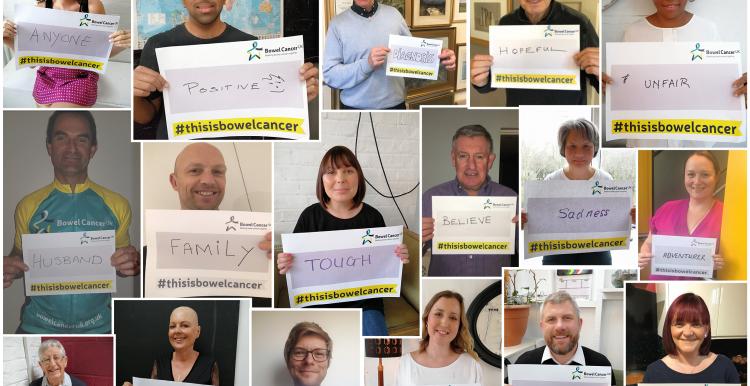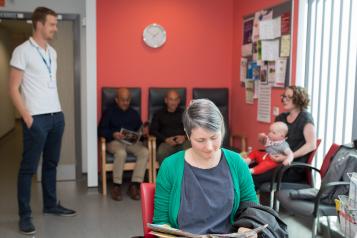Bowel Cancer Awareness Month
Every 15 minutes in the UK somebody is diagnosed with bowel cancer. Young, old, female or male – it affects us all. This Bowel Cancer Awareness Month we’re shining a light on the varied and many people affected by bowel cancer.
Patients and families
Patients and families

About bowel cancer
- Bowel cancer is the fourth most common cancer and second biggest cancer killer in England
- It affects both men and women. It is more common in the over 60s but can affect anyone of any age
- Almost 42,000 people in the UK are diagnosed each year
Bowel cancer is treatable and curable, especially if it’s diagnosed early. Nearly everyone diagnosed with bowel cancer at the earliest stage will survive.
Do you know the symptoms?
Knowing them could save your life!

You are more at risk of bowel cancer if you:
- are over 50 or
- have a history of bowel polyps or
- have longstanding inflammatory bowel disease such as Crohn’s disease or ulcerative colitis or
- have type 2 diabetes or
- have an unhealthy lifestyle or
- have a strong family history of bowel cancer
Scientists estimate around half of all bowel cancers could be prevented by having a healthier lifestyle
- Avoid processed meat for example bacon, ham sausages, burgers, salami - an occasional treat rather than every day
- Limit your intake of red meat to 500g (cooked) per week
- Limit the amount of alcohol you drink - no more than 14 units per week
- Don’t smoke - smoking increases your risk of bowel cancer
Taking part in screening is the best way to get diagnosed early.
If bowel cancer is diagnosed at the earliest stage, more than nine in ten people will be successfully treated.
For more information
- Contact our nurses if you have any questions or concerns about bowel cancer at bowelcanceruk.org.uk/nurse
- Join our online community for everyone affected by bowel cancer at bowelcanceruk.org.uk/community
- Order or download our free publications at bowelcanceruk.org.uk/ourpublications
- For screening information call the England screening helpline 0800 707 60 60


